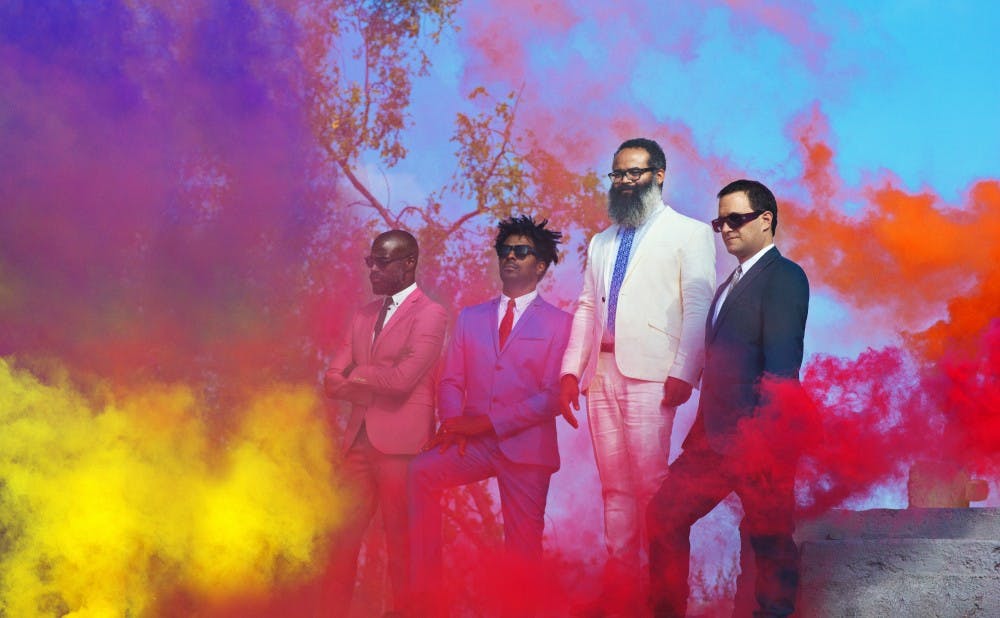So few indie rock bands maintain their own original and persisting sound as TV On the Radio. Their latest album, Seeds, is no different.
TV On the Radio is an indie rock band from the heart of Brooklyn whose booming rhythms and ethereal lyrics are an eclectic mix of electronic synth, reverberating guitar and impressive vocals. Formed in 2001, the band in this new album plays with new techniques such as deeper bass and synth that are softer than their previous while still maintaining a characteristic rough edge.
The opening song "Quartz" is a mash of playful and youthful dissonance. The first seconds of the song are almost disordered. The listener is ambushed with the clash of the backup vocals and synth. When lead singer Tunde Adebimpe's voice lingers onto the track, the song shifts to a more concentrated sound that is still laden with simplistic sequence of light bells matching the delicateness of Adebimpe's voice dispersed through the track. Adebimpe commented that this opening track was one of the best tracks the band has ever recorded, and, to his end, the song succeeds in immersing the listener straight into a line of similarly artistically crafted tracks.
This juxtaposition of sound is a motif that carries through the first half of the album. "Careful You" and "Happy Idiot" rely on the deep underlying beat that connects the various aspects of the songs. These first couple of songs combine quick guitar strums and traditional drum set with more dynamic vocals that shuffle through octaves to add a more nuanced sound to the somewhat telling lyrics very capturing of an individual longing for candid love. At times, the combination of all these elements can be inundating, but realizing the careful strategy and artistic construction of each element of the piece makes the tracks a tad more forgivable.
Songs such as "Could You Love" combines a prominent brass sound that is similar to a popular technique in popular music such as in "Shake if Off" by Taylor Swift. However, TV On Radio's inspiration is not from 1989 but more from the 70s, such as Earth, Wind, and Fire or The Four Seasons. It gives the song a groovy noise that I simply couldn't help but roll my shoulders to rolls in the Adempipe's voice.
Listening through the album, the compositions seem more inspired by late 90s rock--a sound familiar to long-time fans from the earlier work--and less reliant on the synth so popular in the first half of the album. "Lazerray" and "Trouble" showcase a more fragile, yet controlled essence of Adebimpe's voice. The sky-reaching vocals mesh well with the bumbling and lagging music that pulls the listener between a background music and Adempie's tenor.
The album finishes with a more intimate styling that poses a highly ethereal sound in the album's namesake track "Seeds." The flashy falsetto is reserved only for the back-up and a few recurring verses within the track. The song is a testament to a reconciliation between TV on the Radio's soulful nuance and keen ear for simplistic comfort within the melody.
Being a first-time listener to the band, I can honestly say that the music takes getting used to. The sound of the album is can be overwhelming, but it proves a point: that tasteful music is sound of captivating voices and notes as found on this new addition TV on Radio's collection.
Get The Chronicle straight to your inbox
Signup for our weekly newsletter. Cancel at any time.

